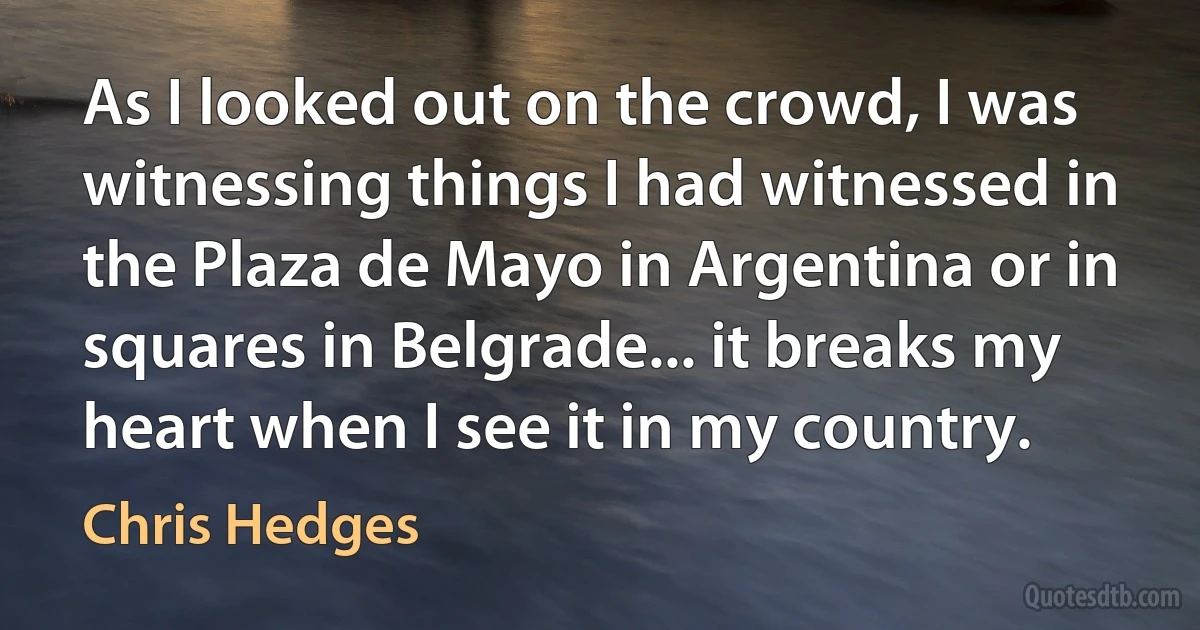Belgrade Quotes
A remarkable challenge to Milosevic unfolded in the street of Belgrade in December [1996], led by three politicians who banded together in a movement called Zajedno, or the Together Movement. For weeks, hundreds of thousands of Belgrade citizens braved subfreezing weather to call for democracy. But Washington missed a chance to affect events; except for one ineffectual trip to Washington, Zajedno had no contact with senior American government officials, and the Administrations sent no senior officials to Belgrade for fear that their visits would be used by Milosevic to show support. For the first time in eighteen months, Milosevic felt no significant American pressure, and turned back towards the extreme nationalists, including Karadzic, for support. His tactical skills saved him again, and within weeks, the Together Movement was together no more, as its leaders split among themselves.

Richard Holbrooke
The Daily Worker disapproves of dictatorship in Athens, the Catholic Herald disapproves of dictatorship in Belgrade. There is no one who is able to say-at least, no one who has the chance to say in a newspaper of big circulation-that this whole dirty game of spheres of influence, quislings, purges, deportation, one-party elections and hundred per cent plebiscites is morally the same whether it is done by ourselves, the Russians or the Nazis. Even in the case of such frank returns to barbarism as the use of hostages, disapproval is only felt when it happens to be the enemy and not ourselves who is doing it.

George Orwell
So there is no single European people. There is no single all-embracing community of culture and tradition among, say, Warsaw, Amsterdam, Berlin and Belgrade. In fact, there are at least four communities: the Northern Protestant, the Latin Catholic, the Greek Orthodox, and the Muslim Ottoman. There is no single language - there are more than twenty. (...) There are no real European political parties (...). And most significantly of all: unlike the United States, Europe still does not have a common story.

Geert Mak
In Mussolini's Italy of the nineteen-thirties, when it meant long terms of improsonment, and perhaps torture or even death, to be in any way connected with the Communist Party, and when not only all the works of Marx, Engels, Lenin and Stalin, but the works of all Italian and foreign democrats and progressive were strictly banned from Italian libraries and bookshops, the works of Trotsky, on the "new kind of communism" were "freely" and widely translated and distributed. I remember vividly how in 1938, passing through Italy on the way to meet the anti-fascist and Communist students of Belgrade University, and spending a few hours in Mussolini's Milan, the word "communism" caught my eye on a number of books prominently displayed in a bookshop window. They were the newly translated works of Trotsky.

James Klugmann
The origins of this horrific human tragedy lay not in Bosnia itself, but in the policies conducted by demagogues in her neighboring countries, especially the Milošević regime in Belgrade - policies that led to the violent dissolution of former Yugoslavia and the near-destruction of Bosnia and Herzegovina, its most plural republic.

Haris Silajdžić

![Castoriadis has given this tradition [the tradition of praxis philosophy] new life by introducing a unique linguistic turn. His work has a central place among the new departures in praxis philosophy that have evolved since the mid-1960s, especially in Eastern Europe (in Prague, Budapest, Zagreb, and Belgrade), and that for a decade enlivened the discussions at the Summer School of Korčula. It is the most original, ambitious, and reflective attempt to think through the liberating mediation of history, society, external and internal nature once again as praxis. (Cornelius Castoriadis)](https://cdn.quotesdtb.com/img/quotes_images_webp/04/cornelius-castoriadis-attempt-central-1003504.webp)
